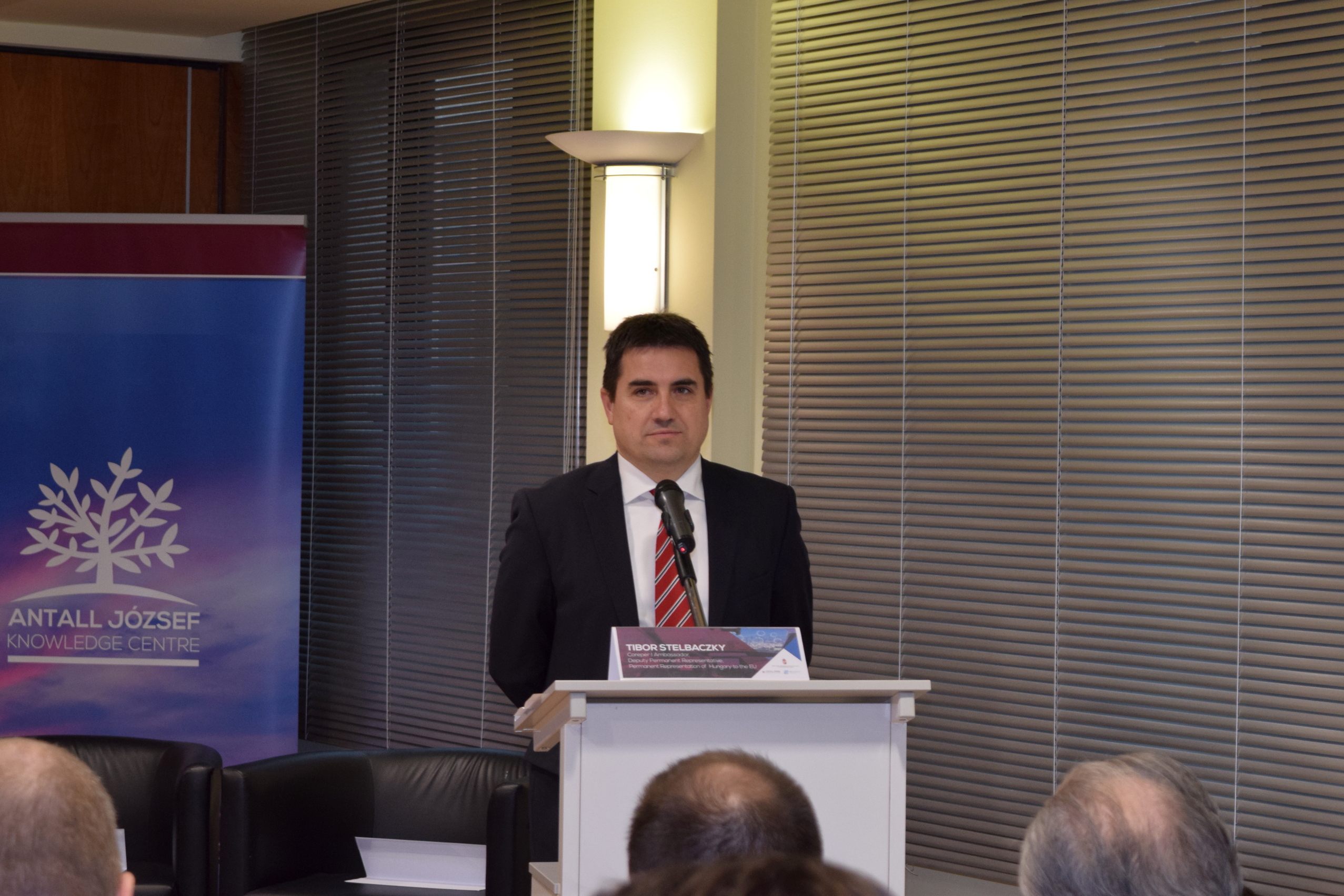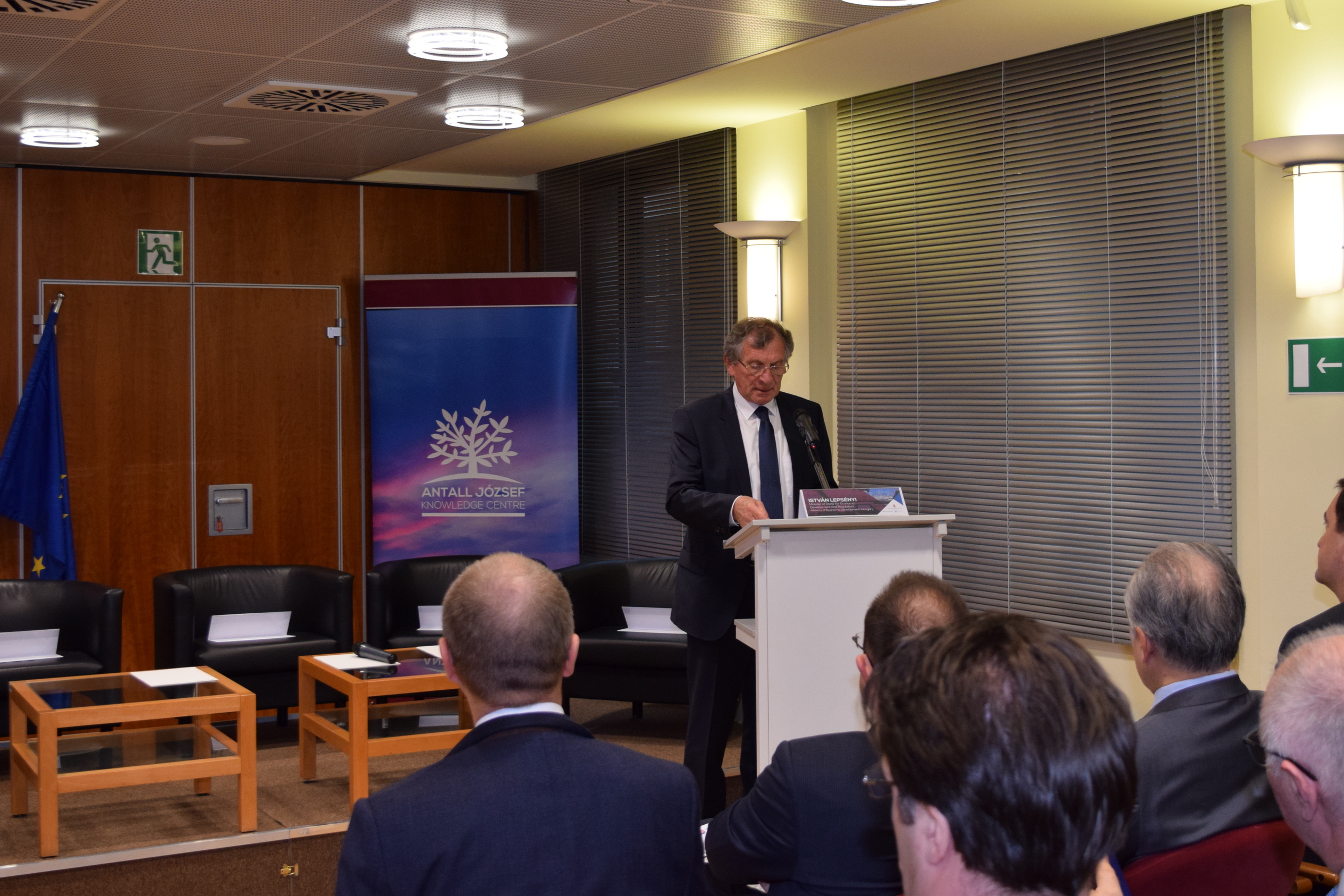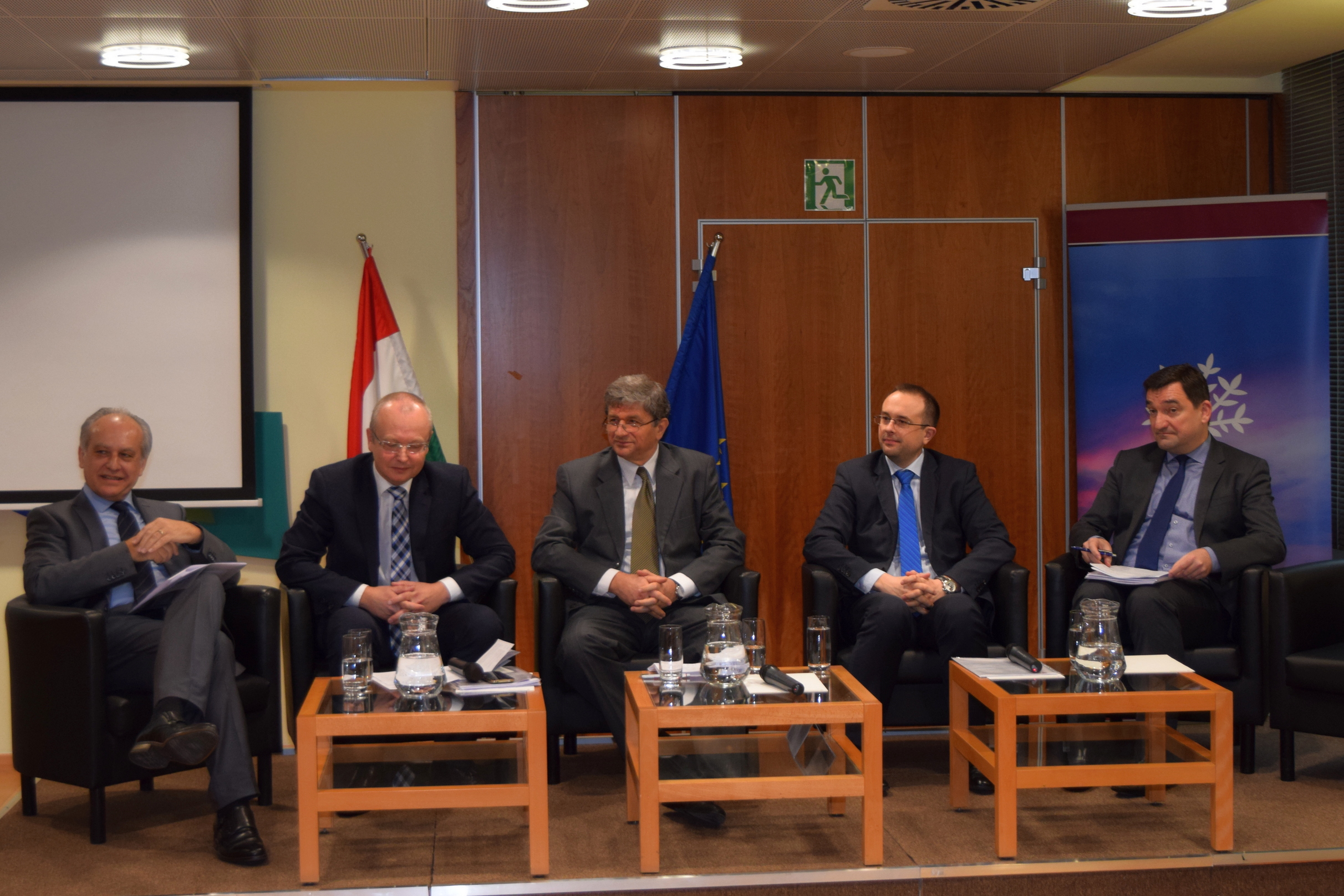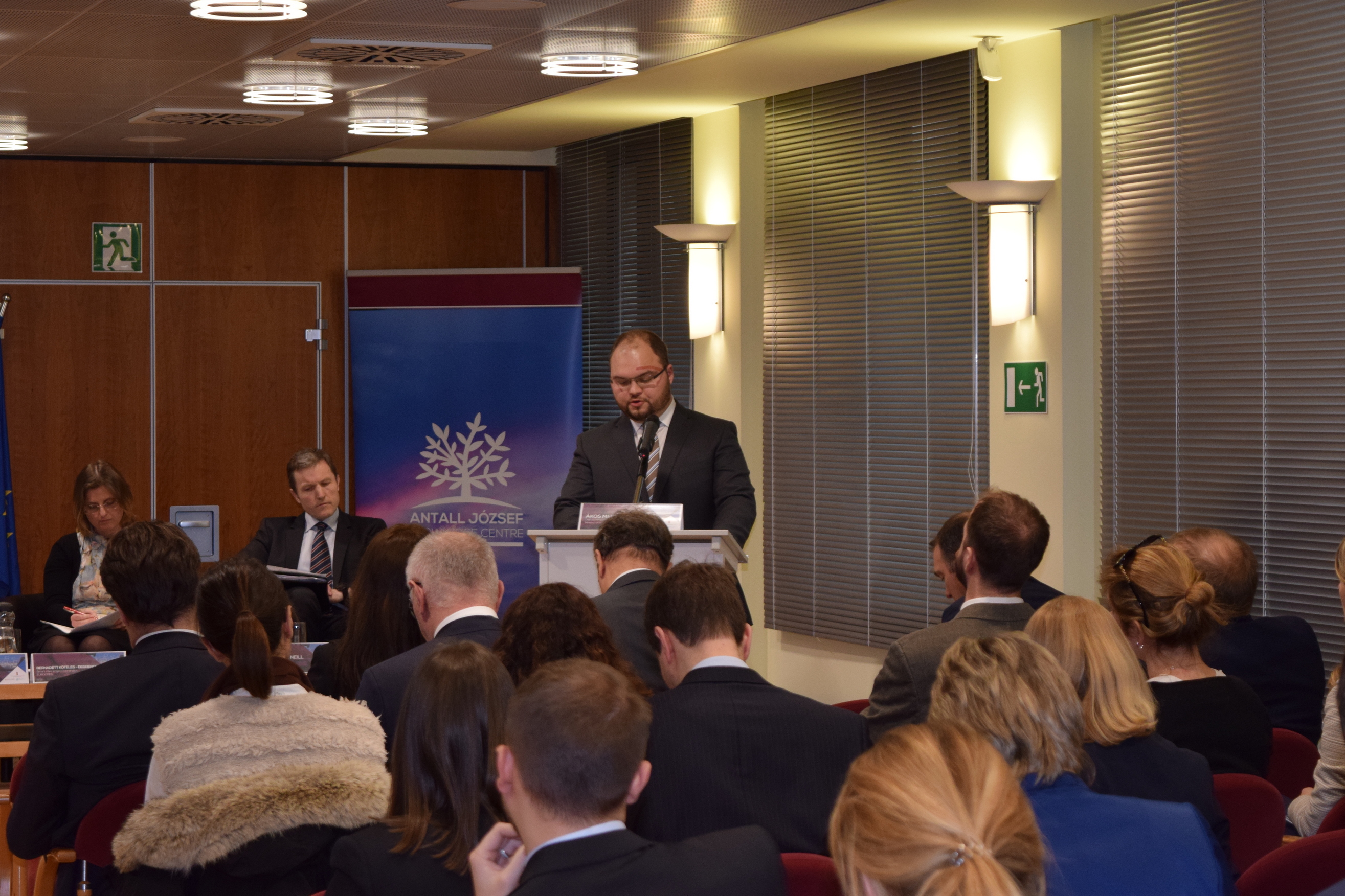The Permanent Representation of Hungary to the EU, together with the Antall József Knowledge Centre, organised a conference on the future of cars and car industry within the framework of the V4 cooperation. Brussels, 13 March 2018.
On the occasion of this international conference, high level representatives from V4 governments and the European Commission, car industry representatives, experts and researchers had an in-depth discussion on the future automobile sector and mobility, with a view that cars have to be more efficient, safe, customised and environment friendly. The European Commission not only supports but also requires the industry (and Member States) to progress with the necessary technical developments in order to meet the expectations of the modern era.
The event consisted of three panel discussions with particularly rich content. During the first panel politicians and industry representatives focussed on the ongoing transformation of automobile industry and further expectation stemming from the legislative framework, with a special emphasis on the Second Mobility Package of the Commission. It was followed by an exchange of views on the transition to digital mobility system, with the participation of the academic, automotive and telecom industry experts. The closing panel discussed the prerequisites of the deployment of smart mobility infrastructure projects. Besides giving an overview on the state of play and possible ways ahead in Europe, it was inevitable to put the European car industry in an international perspective as well, taking stock of the challenges and opportunities stemming from the global markets.
In his opening address Deputy Permanent Representative Tibor Stelbaczky emphasised the unprecedented changes the car industry faces today. The whole concept of “driving a car” will change as soon as we will no longer be holding the steering wheel but only be taking a seat in the vehicle instead. Innovation changes the way we will move around to an extent that no one and no industrial sector can remain unaffected by it. That is why Hungary and the Visegrad region, where automotive industry plays a particularly significant role in the economy, considered it important to talk about this topic and for this purpose organised the conference in Brussels.

Mr István Lepsényi, Minister of State for Economic Development and Regulation described these changes as “quantum shift”, which will not only transform the automotive industry itself, but will have decisive effects on our environment, health, and will induce further societal and economic developments. As V4 countries heavily depend on automotive industry trends (mobility, autonomous driving, digitalisation, electrification), the region has to focus on a few key areas. First of all, we have to concentrate our efforts to adapt to fast-changing markets, global value chains and technologies that form the automotive ecosystem. We have the unique opportunity to foster joint innovation and cross-border collaboration between V4 countries. Our sustainable competitive edge is the high-skilled workforce, therefore we must try to build on a renewed education system, which is partner in innovation and research & development, he added.

Roberto Viola, Director- General for Communications Networks, Content and Technology, began on a positive note, talking about a “bright future” ahead, as he explained that we were moving towards a better, safer and cleaner mobility. He emphasised that with technological development we will be able to drastically reduce road fatalities and traffic congestions, too. There is a paradigm shift which is ongoing, namely the traditional attitude of owning a car gradually transform to that of consuming the (mobility) service: driving (or riding) experience will become more important than the car itself.

Maja Bakran Marcich, Deputy Director-General of the Directorate-General Mobility and Transport (European Commission) underlined the importance of EU support for the deployment and promotion of environment-friendly and alternative mobility projects, however, she emphasized the necessity to shift to mass market size in order to achieve visible results. In this respect more efforts are needed for the implementation – for instance – of the Alternative Fuels Directive; the interoperability of charging stations for e-vehicles has to be made a reality soon. She declared that in the end, the future of mobility depends on consumers’ choices, but it is the responsibility of decision makers what choices are offered to them.

Ákos Mernyei, Deputy State Secretary for EU and International Affairs at the Ministry of National Development, declared that Hungary supports the technical and regulatory background of smart infrastructure projects and connected and autonomous driving. That is also why Hungary decided in 2016 to build a unique test track in Zalaegerszeg. The works started in 2017, and the test track is scheduled to be built in two main stages. The test track is unique in a way that not only does it allow for undertaking ordinary automotive dynamics tests, but also provides for the possibility for CAD and electronic vehicles to be developed and approved there.

